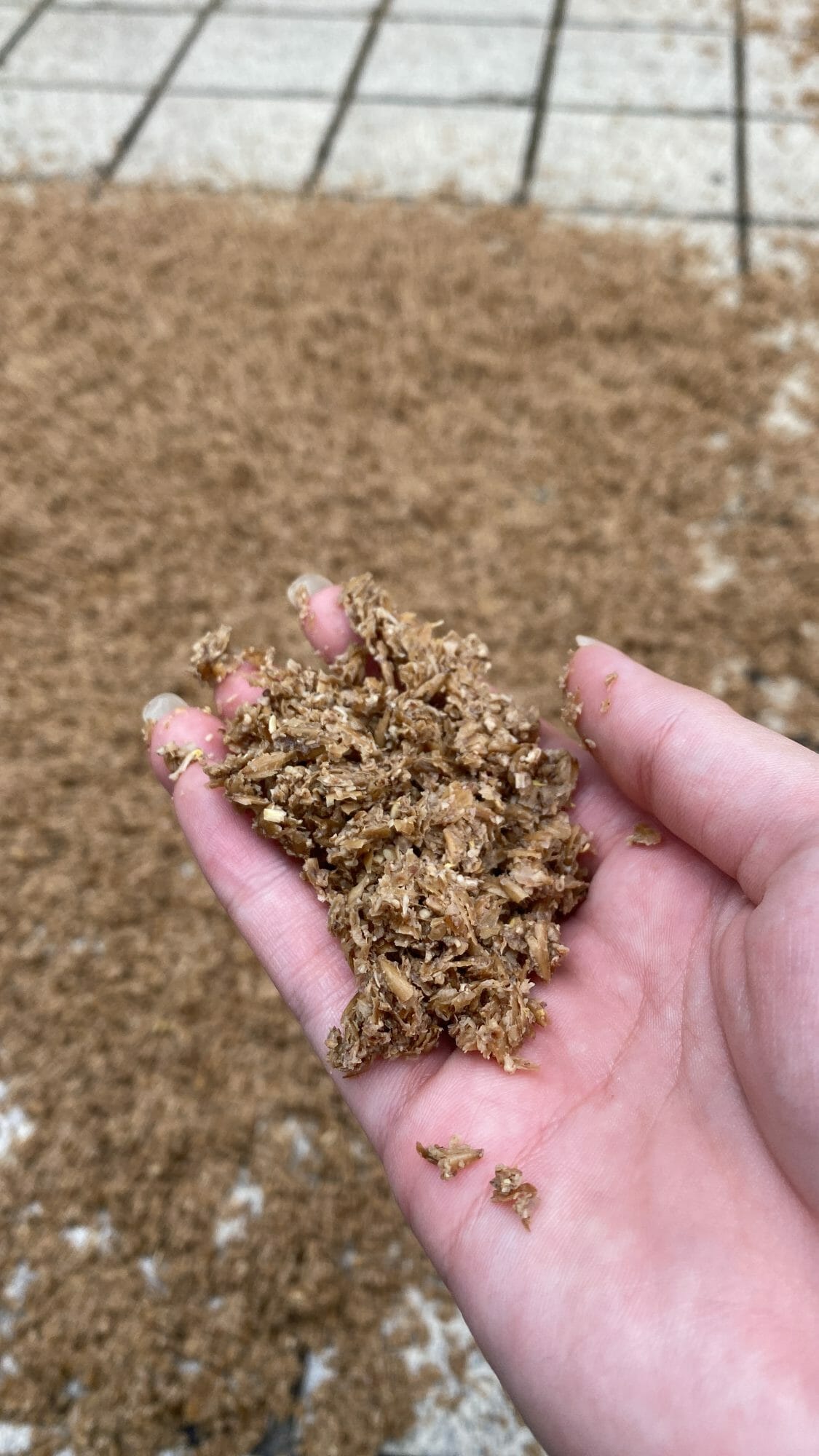With thousands of years of history, beer has undergone significant transformation in its brewing process. Yet, what has remained constant are its four main ingredients: malt, hops, water, and yeast. As brewers perfected the process over the years, its byproducts, such as spent grain, yeast, and packaging materials, emerge as the lesser-known characters in this story, holding their own potential for sustainable use. Let’s explore the waste-to-value journey of HEINEKEN Malaysia as the brewer takes a progressive approach to transform their production waste into sustainable value.
HEINEKEN Malaysia’s Managing Director, Roland Bala explained, “At HEINEKEN Malaysia, we are guided by our Brew a Better World (BaBW) global sustainability strategy, aiming for sustainable excellence from ‘Barley to Bar’. We’ve set an ambitious goal for ourselves: achieving net-zero carbon emissions in our production by 2030 and across our entire value chain by 2040.”
“Our mission? We are committed to ensuring that zero waste from production ends up in a landfill. At the end of the day, our responsibility to our people and planet is not just about brewing better beer — it’s about brewing a better world,” Roland added.
Maximising Circularity in the Manufacturing Line
HEINEKEN Malaysia has been on a journey that transcends conventional manufacturing practices. The company decided it was not enough to just ‘do less harm’ — they wanted to ‘do more good’. Hence, the brewer shifted from a linear to a circular economy and took on the bold mission to close the loop in their manufacturing process, giving its brewery waste a second chance at life.
A significant milestone highlighting their commitment is that the brewer has achieved zero waste to landfill since 2017, responsibly recycling and upcycling their by-products and production waste. Just last year, the company managed to recycle 100% of the 35,423 tonnes of waste it produced and generated RM1.9 million in revenue. The funds received are then reinvested into the brewer’s future sustainability initiatives.
HEINEKEN Malaysia’s waste consists of biodegradable components such as discarded malt, spent grain, spent yeast, spent kieselguhr, and anaerobic sludge from wastewater as well as inorganic waste such as cartons, glass, and mixed steel scrap. The brewer segregates the waste and ensures zero waste is sent to the landfill. To do so, HEINEKEN Malaysia collaborates with local waste management partners to ensure seamless and successful circular management throughout their operations.
The brewer turns waste into value by providing discarded malt, spent grain, spent yeast, and spent kieselguhr to their partners for bioconversion. The bioconversion process utilises the brewer’s spent grain to cultivate black soldier fly larvae which are processed into two main ingredients, insect meal and insect oil, serving as sources of protein for animal feed. These insect proteins are then used to feed pets and farm animals in particular, swine, and as a substitute for fish meals. This process transforms the waste into high-protein animal feed, giving the spent grain a second life.
Apart from that, the brewer also invested in anaerobic digestion systems to convert organic waste into biogas, a renewable energy source that powers the facility. Last year, HEINEKEN Malaysia successfully generated five million megajoules of thermal energy from wastewater, covering 5% of their total thermal energy needs. All waste in HEINEKEN Malaysia is managed and disposed through their certified waste management partners.
Maximising Circularity in Packaging Waste
Since its transition to a circular economy, HEINEKEN Malaysia has extended its sustainability value to its packaging waste as well. The brewer applies the reduce, reuse, and recycle method in managing their bottles, kegs, and crates waste. They collaborate with trade partners through a deposit system and ensure reusable kegs, bottles, and crates are returned to the brewery. As a result, their efforts have led to impressive return rates of 95% for kegs, 82% for bottles, and 92% for plastic crates in 2022.
HEINEKEN Malaysia is also continuously improving its packaging materials, achieving thinner, lighter, yet more durable solutions that require fewer resources to produce. The result – creating and scaling efficient and sustainable packaging. The brewer has successfully eliminated single-use plastics in the primary packaging of their products by procuring scale-efficient and sustainable packaging. They are also continuing to explore innovative packaging solutions to shift to recyclable materials such as paper collars made from recyclable paperboard. They ensure that this packaging utilised the least number of materials while keeping the beer cans safe and secure throughout the supply chain.
The brewer strives to reduce our environmental footprint by innovating, recycling, and reusing the materials it uses in its packaging, while at the same time ensuring that the packaging designs stand out from the crowd.
Reflecting on the journey so far, Renuka Indrarajah, Corporate Affairs & Legal Director of HEINEKEN Malaysia, shared “At HEINEKEN Malaysia, sustainability is embedded in our culture. We have established a sustainability governance committee that ensures cross-functional collaboration, driving our sustainability ambitions across the entire organisation. It’s clear that our zero-waste-to-landfill journey was a team effort, involving every level of our employees as well as our stakeholders. Hence, to truly succeed, sustainability must be integrated and aligned through effective communication, leadership commitment, implementation, and monitoring.”
“As we look to the future, our commitment remains the same – to continually refine our sustainability approach. We believe a systemic approach and a cross-functional team are key to maximising circularity, and we want to inspire other businesses to join us on this journey,” she added.
For more information on HEINEKEN Malaysia’s sustainability journey, download the brewer’s Annual Report here: https://www.heinekenmalaysia.com/annual-report-2022/











